
C-class value that senior executives should see in Supply Chain
A ‘womb to tomb’ business warrants chief status in healthcare enterprises
What is the most valuable or strongest asset that Supply Chain brings to the C-suite and why? The Bellwether Community sounds off with their impressions and observations.
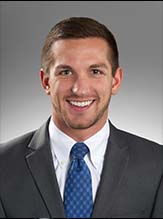
Ben Cahoy
Ben Cahoy, Future Famers Class of 2017, Director, Supply Chain Category Management, Sanford Health: “Supply Chain’s most valuable asset to the C-suite is the conditioned skills and experience essential to optimize value in diverse situations across a matrix organization. The practices supply chain employs in daily operations can be translated across all segments – both horizontally and vertically – of the organization to stimulate enhanced outcomes. Many healthcare organizations have looked to supply chain as a strategic partner that can add value outside of historical product/service sourcing and fulfilment in areas such as improvement committees or new program development.”
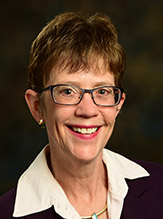
Nancy LeMaster
Nancy LeMaster, Bellwether Class of 2015, CEO, Nancy LeMaster Consulting: “Strategic insight. Supply Chain executives work across the entire organization with stakeholders at all levels and have tremendous insight into what is working well and what isn’t. We bring vast experience in bringing together people, process and technology to solve problems.
“Supply Chain has a vantage point to see how departments and processes interrelate because we work across the organization and see things that finance and operations people often aren't exposed to. We see the relationships between various clinical areas as well as how clinical areas and support services interact. That insight can help with discussions and decisions beyond actual supplies. I think the C-suite often underestimates the broad leadership and business savvy their supply chain leaders can bring. In addition, we often have access to people like the senior leaders and sometimes CEOs of our suppliers. I was able to set up a meeting between BJC’s and Cardinal’s CEOs to talk about the state of the healthcare industry. I've also paired provider and supplier HR and IT professionals.”
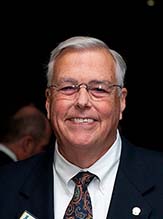
Derwood Dunbar Jr.
Derwood Dunbar Jr., Bellwether Class of 2011: “Many of the Supply Chain leaders that have come up through the ranks never consider themselves to be C-suite people. The strongest asset that anyone can bring to the C-suite is their personal C-suite mentality, i.e., I belong here! hat is done through education as 30% of the expense budget is what we handle. Almost everything that comes in is because of us and almost everything that leaves is because of us. The healthcare supply chain is a ‘womb to tomb business’ and if it isn't, then as professionals we need to correct that. Interpersonal relationships are very important. Let’s all support the mission of the institution together rather than adversaries.”

Jim Francis
Jim Francis, Bellwether Class of 2017, Chair, Supply Chain Management, Mayo Clinic: “Information and knowledge about opportunities for value creation or savings in the second largest – and growing – area of expense. Supply Chain Management should be viewed as a trusted partner, if not part of the C-suite. Supply chain touches all areas of a hospital or health system and is a tremendous source of information and insight beyond designed reporting and analytics.”

Dale Montgomery
Dale Montgomery, Bellwether Class of 2014: “Supply Chain leaders deal with every department and every aspect of operations every day. The ability to bring this total knowledge to the C-Suite in the most valuable asset in my opinion. From EVS to Physician Service, we are the only department that has that total hands-on knowledge base.”
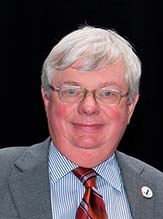
John Strong
John Strong, Bellwether Class of 2011, Principal, John Strong LLC: “The ability to align [C-suite] strategy with that of supply chain to bring value to emerging organizational strategies. For example, if your organization is purchasing clinics, ambulatory surgery centers and other non-acute sites of care, how will you standardize product, provision those sites, and bring value across your entire health system? You have to share and align your vision in supply chain to organization-wide events.
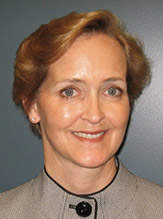
Donna Van Vlerah
Donna Van Vlerah, Future Famers Class of 2015, Honoree, 2021 Dean S. Ammer Award for Healthcare Supply Chain Performance Excellence, Senior Vice President, Supply & Support Services, Support Division, Parkview Health: “Supply Chain is not a ‘function;’ it is an’ enabling service.’ We provide multi-dimensional support, ranging from acquisition, contracting, clinical integration, warehouse, distribution and data analytics. This scope is certainly not all inclusive. We are a ‘force multiplier and enabler!’”
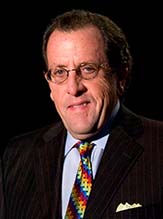
Jim Hersma
Jim Hersma, Bellwether Class of 2012: “In a word? Trust. To me the strongest asset of trust is difficult to learn, yet is essential to the effectiveness, results and culture of an organization. Entire books are written about the importance of trust in relationships.
“To be brief, there are at least two key components of trust. Once they are in place they are the foundation to cement the bonds that are necessary per relationship:
- Earn the reputation that when you’re tasked to accomplish something that you do so with a team approach, perform the duty on time and with a focus on overachievement as to timing, amount or added value.
- Earn the reputation that your opinion is fact-based, well-explained and is accurate and valuable.
“If these attributes are earned (per relationship with suppliers, team members, executives, peers and other constituencies) then goals are achieved faster and within a positive and enjoyable culture.”
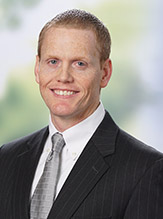
Jason Hays
Jason Hays, Future Famers Class of 2015, Executive Director, Supply Chain Operations, Bon Secours Mercy Health: “Options. The C-suite is constantly being challenged on managing margins, declining volumes and reimbursement, while keeping physicians happy. Supply Chain can provide good options for meeting these challenges.”
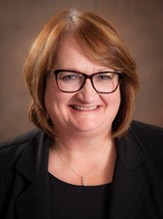
Deborah Templeton
Deborah Templeton, Chairman, Bellwether League Foundation, Past Treasurer, Bellwether League Inc.: “Supply Chain brings a ‘system’ or ‘enterprise’ perspective to issues and processes. Supply Chain not only has to work across an organization, it needs to collaborate with levels up and down an organization. This makes it easier for Supply Chain to see the ‘big picture,’ connect the dots and drive collaboration. This vantage allows the supply chain to not only deliver the cost efficiency expectations to drive ‘waste’ out of processes, but to then take and apply those principles to other areas of the organization.”
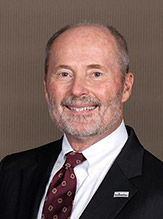
Jamie Kowalski
Jamie Kowalski, Bellwether Class of 2017, Co-founder and Founding Chairman, Bellwether League Inc., Co-founder and Board Secretary, Bellwether League Foundation: “A true supply chain leader (SCL) needs the entire skill set that any ‘C’ does. Therefore, the SCL can empathize and strategize with the Cs. It further enhances effective communication.”
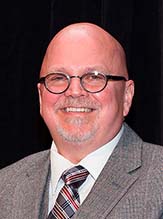
Mike Switzer
Mike Switzer, Bellwether Class of 2015: “We often have our finger much closer to the pulse of what is actually going on. They know we analyze and correct the data before it ever gets to them and that they can trust what we are giving them. There isn’t anyone else who spans so many varied areas and can help to improve those areas.”
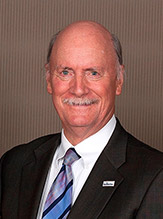
Dick Perrin
Dick Perrin, Bellwether Class of 2014, CEO, Active Innovations: “The inherent understanding that the desired results of patient care are dependent on a strong team working together to meet the clinical patient care requirements. Working together with the senior staff to define and delineate the best strategy and then working with the team to define what tactics should be used to move the various processes forward rank high as one of the strongest assets the supply chain leadership can contribute to the organization.”
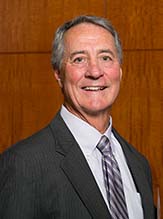
Ted Almon
Ted Almon, Bellwether Class of 2010, Chairman, The Claflin Co.: “An understanding of total cost vs. price. Hospitals spend about 17% to 18% of their operating budget on supplies, but when you allocate labor to the tasks of acquiring, distributing, disposing of, etc. that figure can easily double. The most efficient and cost-effective supply chain may not always have the lowest acquisition costs. It is the one that buys the most appropriate products for the intended purposes and pays for the level of service that keeps the chain moving with the least intervention.”
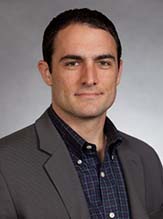
Eric Tritch
Eric Tritch, Future Famers Class of 2015, Vice President, Supply Chain & Support Services, UChicago Medicine: “Supply Chain brings a unique perspective partnering will all aspects of the organization along with the external marketplace and peer organizations to have a great perspective on the business and how we should align efforts and resources to position us well in the marketplace and provide a balanced view without being specifically invested in a particular department or service line.” Editor’s Note: In December 2020, Tritch was recognized by Illinois Gov. JB Pritzker as an “Unsung Hero” for developing “innovative strategies to reduce unnecessary burn rates of critical items and sourcing strategies to ensure distribution of critical inventory.” The Illinois Health and Hospital Association developed the “Unsung Hero” designation as an initiative to acknowledge and recognize “valiant, sustained efforts of healthcare workers on the pandemic’s front lines for their dedication, hard work and sacrifice.”

Jean Sargent
Jean Sargent, CMRP, FAHRMM, CRCST, Past Board Member, Bellwether League Inc., Principal, Sargent Healthcare Strategies: “The financial aspect of an organization makes or breaks the business. Human Resources is at the table, which is large spend, so why shouldn’t supply chain be at the table? The opportunities for Supply Chain to have control, or be a part of, all purchasing in an organization are staggering. Providing this supporting documentation to have the staff required is essential, which then opens the door to providing the benefits realized from this type of structure.”
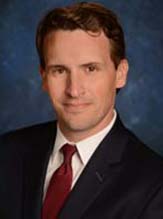
Nate Mickish
Nate Mickish, Future Famers Class of 2015, Vice President, Sourcing, Supply Chain Management, Texas Health Resources, President, OnHand Supply Chain: “I’d say the strongest asset that Supply Chain brings to the C-suite is the unlocked potential of the partnerships it forges internally and externally. If Supply Chain has productive relationships with its industry partners, then cost savings is a given. There are innumerable benefits beyond cost reductions that can and should be tapped by supply chain leaders that only productive relationships can bring. Whether it’s being the first to see or use a new technology, the ability to handle a crisis collaboratively or finding new and creative solutions to age-old problems. The supply chain leader has a unique opportunity to do all of this if she or he so chooses to identify and pursue these opportunities.”
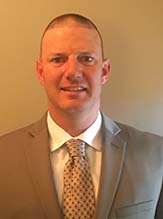
Troy Compardo
Troy Compardo, Future Famers Class of 2018, CEO, Boone Center Inc., former Regional Operations Director, DaVita Kidney Care and former Director, Supply Chain Operations, BJC HealthCare: “Supply Chain leaders find themselves at the intersection of multiple-stakeholders and systems across many enterprises, so they can break down barriers, innovate and drive value across the organization and across diverse departments.”
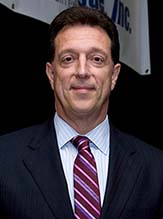
Bill Donato
Bill Donato, Bellwether Class of 2013, Vice President, Supply Chain, Hospital for Special Surgery: “The skills, tools and knowledge to effectively manage non-labor spend. Success requires a specific set of specialized skills, passion and flawless execution.”

Peggy Styer
Peggy Styer, Bellwether Class of 2016: “Supply Chain is operational. Many executives don’t have a practical understanding of implementation at lower levels in the organization. The successful supply chain executive can point out the perils of a faulty implementation plan, i.e., what seems acceptable to an executive with a doctorate degree may not be that easy when approached by the average worker. Example: When you’re looking at changing work schedules to save money, take into consideration the needs of those who depend upon public transportation.”
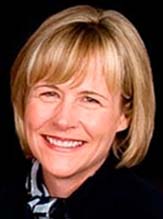
Mary Starr
Mary Starr, Bellwether Class of 2018, Vice President, Member Services, Greenhealth Exchange: “The ability to manage complex processes behind the scenes but nonetheless critical to the organization’s ability to effectively care for its patients.”
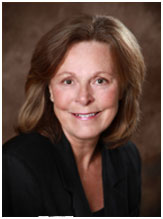
Dee Donatelli
Dee Donatelli, Bellwether Class of 2015, Vice President, Professional Services, symplr: “Strategy regarding the process and connectivity that Supply Chain has with all departments. A collaborative player that can help provide value across the organization.”

Vance Moore
Vance Moore, Bellwether Class of 2019, Healthcare Advisor, RocketStop, former President, Business Integration, Mercy Virtual: “Integration and alignment – Our supply chain has been a catalyst for bringing clinical, operational and financial leaders together to make decision and solve problems. Our humbler and unifying approach helps create a great culture of confidence and inclusion.”
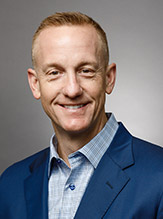
Jody Hatcher
Jody Hatcher, CEO, Morris & Dickson Co. LLC, and former President, Supply Chain Services, Vizient Inc., Founding Sustaining Sponsor: “Supply chain leaders are playing an increasingly strategic role in helping hospitals meet their financial goals. They are uniquely positioned to deliver insights that bring data from both the clinical and supply sides, providing the C-suite with a broader snapshot of the true cost of patient care. We can no longer look at cost and quality in isolation – looking at them together in a meaningful, actionable way and working closely with clinicians to consider utilization is the only way to move the ball on supply costs.”